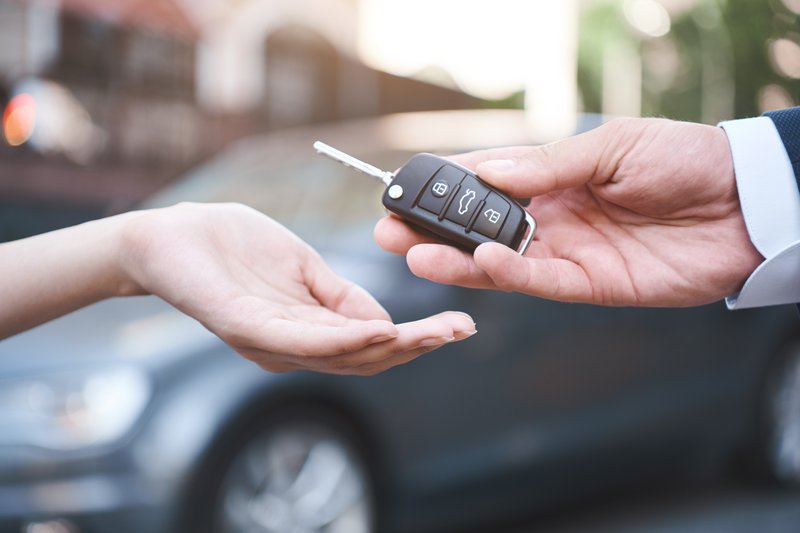Selling your car on consignment - what could go wrong?
Updated | By Wendy Knowler
A lot, says Consumewatch’s Wendy Knowler.

The dealership could sell your car and then not pay the money to you as agreed.
READ: How can you tell if that Gumtree buyer is actually a crook? Wendy Knowler is here to help
In early December, Keryn Harrison gave her 2008 Mini Cooper S to KZN Cars in Pinetown to sell on consignment - it was agreed she would be paid R75,000.
In late January, the dealership told her she’d be paid that day.
That never happened. By early March, the dealership verbally offered to pay her back in monthly R25,000 installments, but when Keryn accepted via email and repeatedly asked for an acknowledgement, she was met with silence.
READ: The new normal is… there is no normal
Finally, this week, after she approached Consumerwatch for help, she received a payment of R25,000.
Remember, Keryn was told in late January that full payment of R75,000 would be made that day.
READ: How do I get a credit record when no-one will give me credit?
I’ve heard from a few other East Coasters who’ve advertised their cars for sale on Gumtree, and then been approached by a dealership with an offer of a “park and sell” consignment arrangement.
The park and sell part happened, but the payment of the agreed price didn’t.
Beware!
READ: World Consumer Rights Day: The Best of Consumerwatch
If you fall for a pyramid scheme, you’re breaking the law
Whatever that social media post chooses to call it - a stokvel, a gifting circle - if it involves paying to get in and recruitment of your mates, it’s a pyramid scheme.
And pyramid schemes are illegal in South Africa.
READ: The big Salt and Vinegar tease
COVID-19 created a very fertile ground for those behind cleverly packaged pyramid schemes - the pandemic and related lockdowns diminished or destroyed so many people’s livelihoods and the isolation made many crave the connection that comes from believing you belong to a special club.
The people behind pyramid schemes are very clever at convincing those in need of hope or salvation from their awful circumstances why they are not, in fact, pyramid schemes.
READ: Nil by Mouth (except water)
Up Money, for example, presented itself as a meal and grocery stokvel; stokvels being trusted by many South Africans as a means of paying for bulk groceries.
It was formed in April last year “to optimise on the opportunity presented by groceries bulk buying,” according to director Jude Matsimela.
To receive a promised meat or grocery pack, participants were required to pay a one-off joining fee of R180 and to recruit five new participants.
READ: Identity theft is up by a massive 337% and Wendy Knowler explains why
Well, this week Up Money was fined R1-million by the National Consumer Tribunal for conducting a pyramid scheme ie, contravening the Consumer Protection Act.
The CPA describes a pyramid scheme as an arrangement, agreement, practice or scheme if participants receive compensation derived from their respective recruitment of other persons as participants, rather than the sale of any goods or services.
"South Africans are reminded to be careful not to contravene the CPA while trying to explore other sources of income as they lose money in the process,” says acting National Consumer Commissioner Thezi Mabuza.
"Pyramid schemes continue to mushroom on a daily basis especially on social media platforms and consumers continue to lose their hard-earned money.
READ: Car Payments: Are you keeping track? Wendy Knowler weighs in
“The directors, the promoters - the ones who advertised and recruited on social media and other platforms - and all those who joined Up Money, broke the law. We want to send a strong message to operators of schemes, arrangements or practices like Up Money that as the consumer protector in the space, we will not tolerate the contravention of the Act.”
The almost 230,000 people who signed up with Up Money need not fear prosecution, but their “punishment” is knowing that the estimated R18-million which was in Up Money’s account when the NCC froze it last August will now be forfeited to the State.
Contact Wendy
Get in touch with Wendy via her website or her Facebook page. Please note that Wendy is not able to personally respond to every email she receives. If she is able to take up your case, she will contact you directly. Here are other avenues for you to consider.
Listen to more podcasts from Wendy Knowler in the Consumerwatch channel below:
Main image courtesy of iStock
Show's Stories
-
Podcast catch up: The lady that quit her job to become a winner
"What have you won?"
Vic Naidoo 5 hours ago -
Listen to some inspiring words from a local mom and author
"You have something inside of you that is uniquely you and it is powerfu...
Carol Ofori 5 hours ago